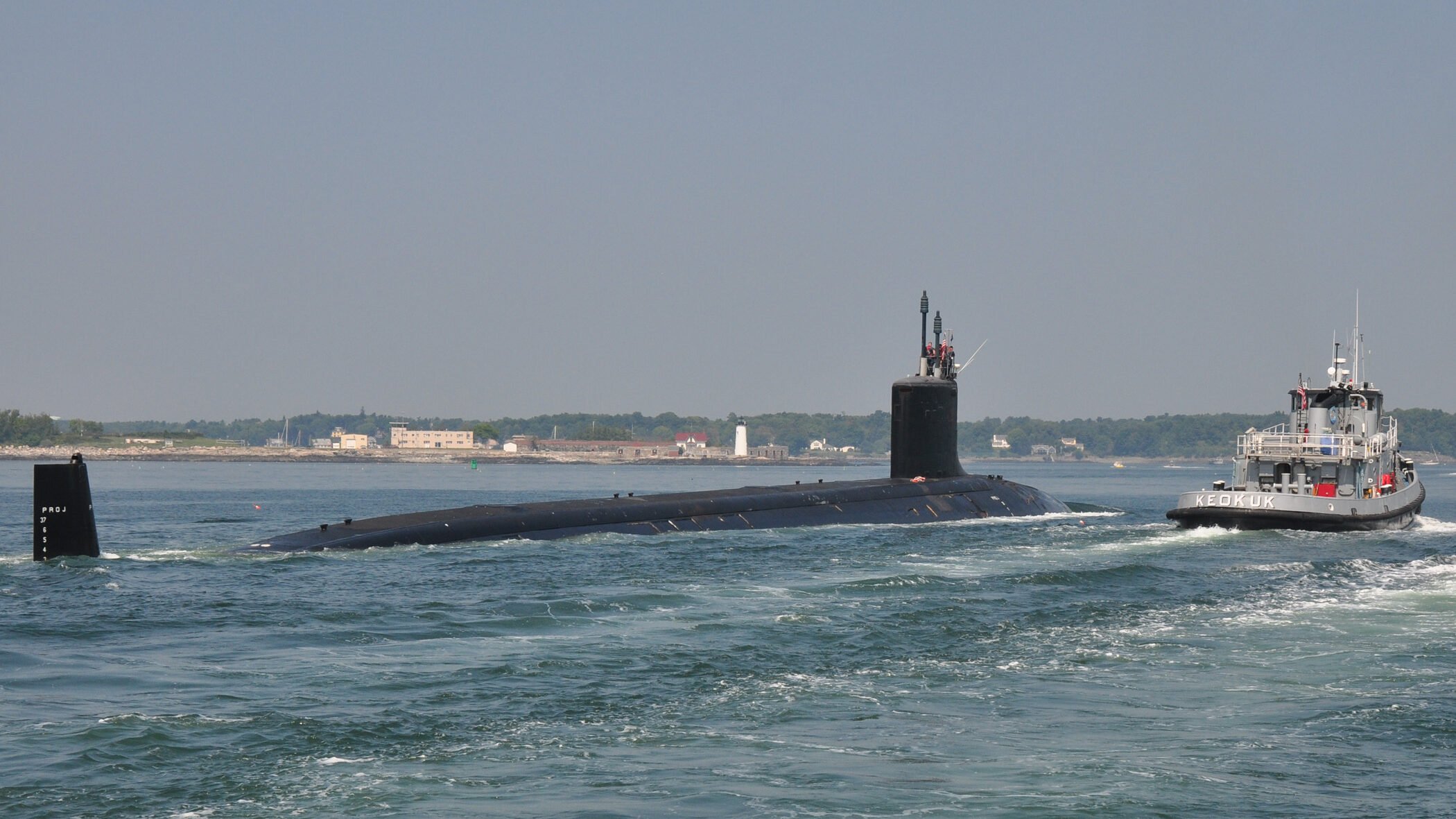
The attack submarine USS Virginia (SSN 774) arrives at Portsmouth Naval Shipyard for an extended dry dock selective restrictive availability. (US Navy)
WASHINGTON — The Navy in recent years has made contradictory budget requests that don’t always align with its previously negotiated long-term procurement agreements, and it’s causing confusion for lawmakers tasked with crafting the annual defense budget, a government watchdog found.
Those conclusions came from a new Government Accountability Office report, released today, that said the service in at least three major acquisition programs — DDG-51 destroyers, V-22 helicopters and Virginia-class submarines — made multi-year procurement agreements and, subsequently, made budget requests that failed to follow those contracts’ plans as written.
GAO examined how often the Navy strayed from its stated agreements following congressional concerns voiced in March 2022 that the service was underfunding “critical Navy weapon system programs.”
The Defense Department uses multi-year procurement contracts to establish purchasing rights for certain weapon systems several years in advance and, in exchange, the vendors offer the Pentagon a better bottom line deal for the promise of future work.
Since the government’s budgets are traditionally decided one year at a time, these long-term deals require special permission from Congress before signing a contract, which is partly why lawmakers take issue with the Pentagon not following through on them.
For example, the budget request in fiscal 2022 should have included funding for two DDG-51 destroyers, according to the program’s multiyear procurement contract. Instead, the service sought only one ship and requested $33 million to cover the liability cost of reducing the buy. (In the end, the Navy placed the ship on its unfunded priority list, prompting lawmakers to buy it despite the budget request.)
But even those departures, with or without a clear explanation to lawmakers, are currently acceptable, according to the Pentagon’s internal policies.
“GAO found that Department of Defense financial management regulation does not require the Navy to notify the congressional defense committees of its rationale for budget decisions that do not support the procurement quantities stated in multiyear contracts,” according to the watchdog’s report.
“The lack of such notification can hamper the ability of the committees to oversee programs and make decisions without having to request supplemental information and explanations from the Navy,” the report continued.
Navy officials told auditors “affordability” was primary factor they considered when making requests that deviated from the multi-year procurement contracts. They also argued the president’s budget submission is not final until the White House approves it, meaning its publication would be the “first opportunity” the service has to explain its choices to lawmakers.
“The officials added that — although there is no notification requirement — the Navy uses subsequent briefings to congressional committees or congressional hearings to communicate these types of changes,” according to GAO.
The Navy official, Rear Adm. J.E. Pitts, who responded on the service’s behalf concurred with GAO’s recommendation that the Pentagon “establish a requirement to ensure the congressional defense committees receive notification of the rationale for any budget requests that do not fund the procurement quantities stated in the multiyear contracts.”
Why supporting Ukraine is ‘main priority’ for Norway’s defense chief this year
“I have more sense of urgency in 2024 than I had in 2023” about how quickly Russia can rearm its military, Norway’s Chief of Defense, Gen. Eirik Kristoffersen, told Breaking Defense.


























